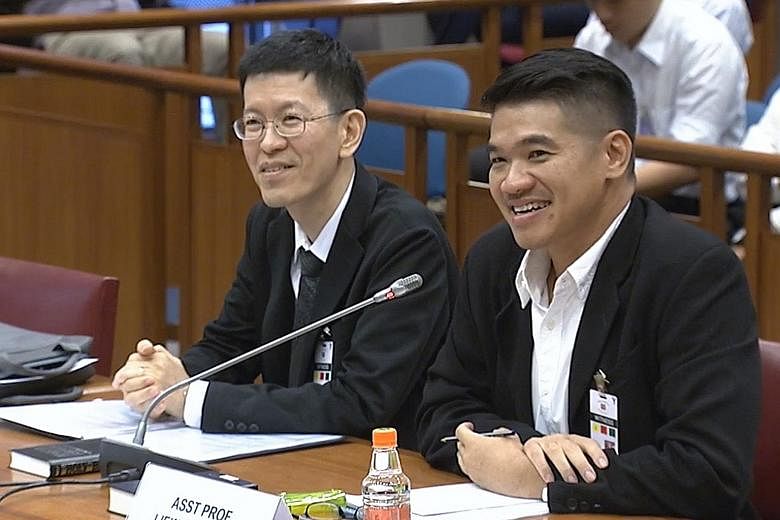The local online citizenry is savvy enough to detect online falsehoods most of the time, but some situations warrant government intervention, said two academics from the Wee Kim Wee School of Communication and Information at Nanyang Technological University.
On a normal day, "low-level online trolling" can be quite easily dismissed by local netizens, Assistant Professor Liew Kai Khiun told the Select Committee on deliberate online falsehoods yesterday.
However, in an emergency such as an epidemic outbreak or riot, or a major event such as an election, the Government should step in "as a lifeguard", he said, adding that it should issue take-down notices of falsehoods and keep close tabs on those who create such fake news.
And such steps should not be taken quietly as they could fan conspiracy theories and suspicion, but should be publicised.
Dr Liew said: "The take-down principle is important for expressing a strong message... that the Government is serious about this, the authorities are acting on it."
Associate Professor Alton Chua agreed, adding: "The taking down itself cannot be done in isolation of other measures. It has to be publicised on mainstream media. It has to be interpreted in the larger context of what we value as a society."
Speaking to the media after the hearing, Dr Liew said the Government should pay particular attention to foreign troll operations.
He noted that after President Tsai-Ing Wen of Taiwan was elected in 2016, her Facebook page was inundated with more than 40,000 comments in simplified Chinese script.
"That is actually from… no prizes for guessing," he said, without identifying the culprit. "It is kind of like a hybrid war, and no government would say that it was orchestrated, and it takes a certain effort to have this process of information domination," he added.
During the hearing, both professors said other longer-term measures should be implemented.
Dr Liew said citizens have to be made more aware of what to look out for, and the Government must be seen to take action when citizens raise complaints, as underlying tensions can be exploited easily by online trolls to spark a crisis.
In his written submission, Prof Chua called for the National Education curriculum to be expanded to cover the moral, legal and social implications of fake news.
He also suggested supporting and growing fact-checking online communities. "A starting point can be found in the hubs of existing social networks and, in particular, influential users whose views and voices can spread widely within a short time," he noted.
Correction note: An earlier version of this story said that President Halimah Yacob's Facebook page was attacked by online trolls after her election last year. This is incorrect. Dr Liew was referring to the election and Facebook page of Taiwanese President Tsai-Ing Wen.


